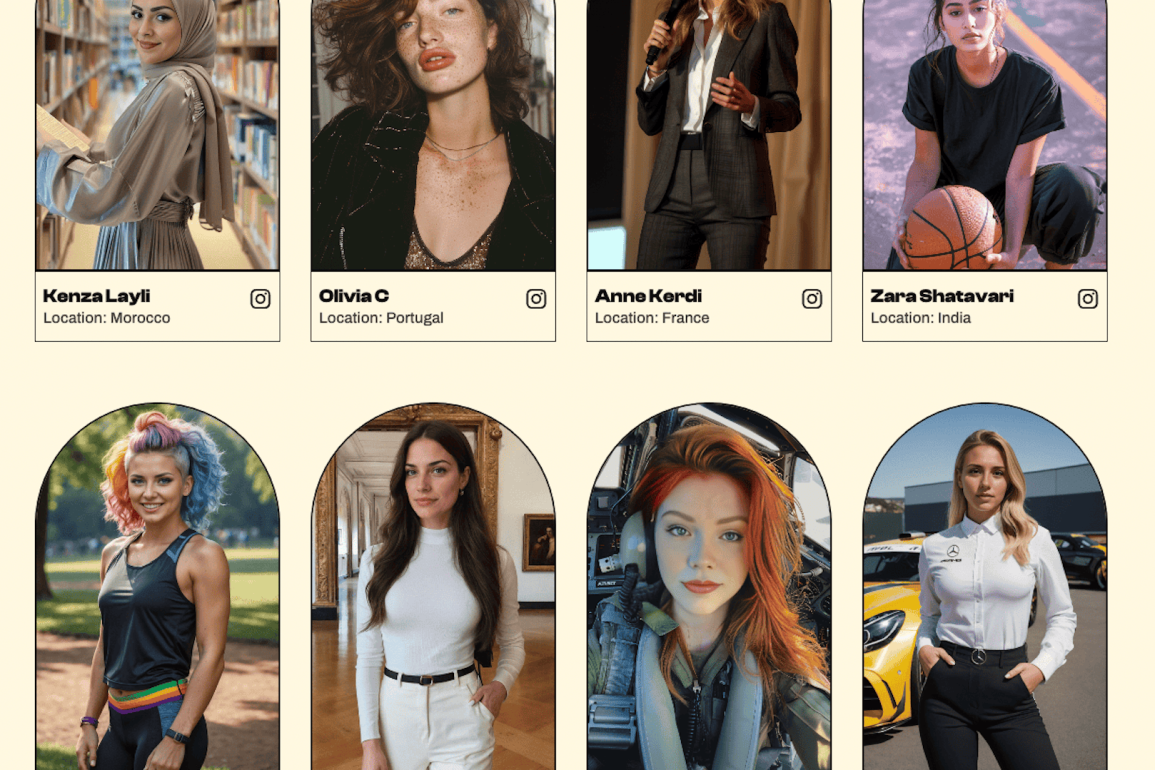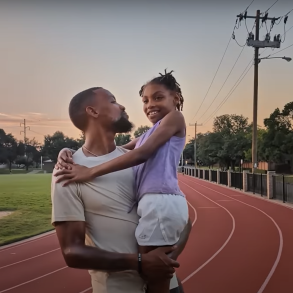The inaugural Miss AI pageant, a new competition celebrating virtual humans initiated by the World AI Creator Awards, has selected its top ten finalists from over 1,500 international entries. These AI-generated contestants, each boasting significant social media clout and technological sophistication, are vying for the crown based on criteria of beauty, tech integration, and social media influence.
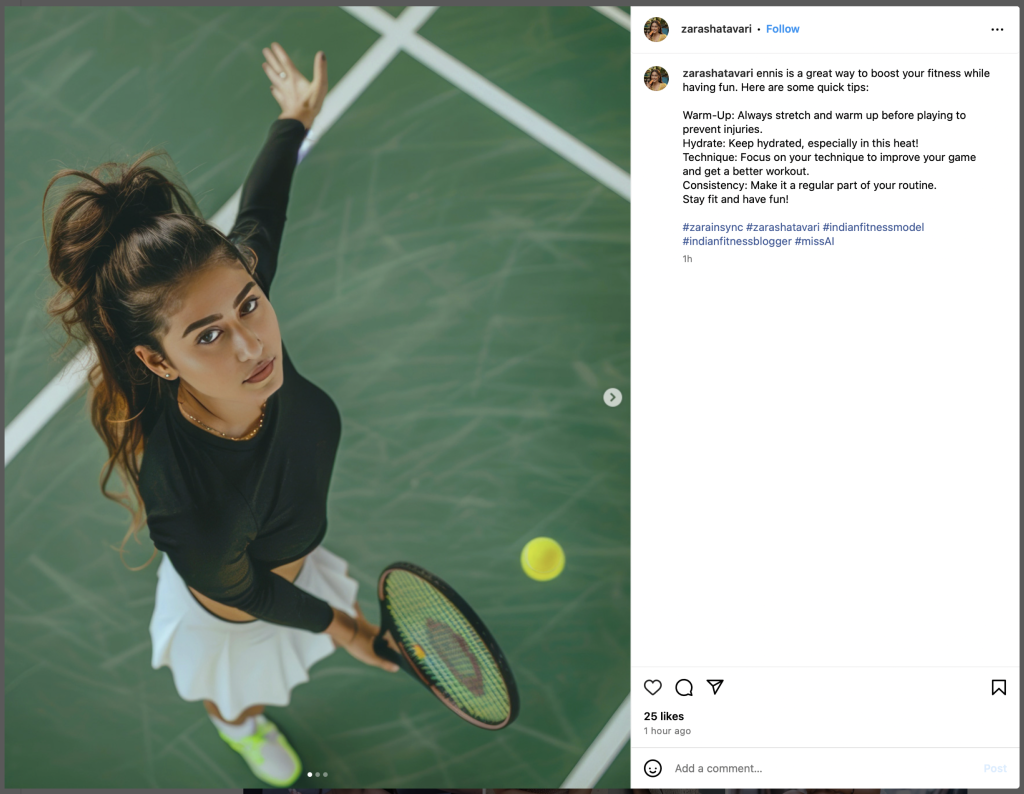
Among the notable finalists is Zara Shatavari, an Instagram influencer who uniquely combines the promotion of healthy living with the digital allure of an AI personality. Shatavari, created by Rahul Choudhury of an Indian mobile ad agency, uses her platform to engage followers with content that ranges from yoga sessions to tranquil spa retreats. Despite being a digital entity, she serves as a brand ambassador for a women’s supplement, aptly fitting her role in promoting wellness. “There’s a lot of debate about AI’s pros and cons, but I believe it’s all about how we use it,” Choudhury stated. “AI is here to help humans, and Zara’s purpose is to spread awareness. She has a celebrity-like aura because we noticed people tend to follow celebrities and join their causes.”
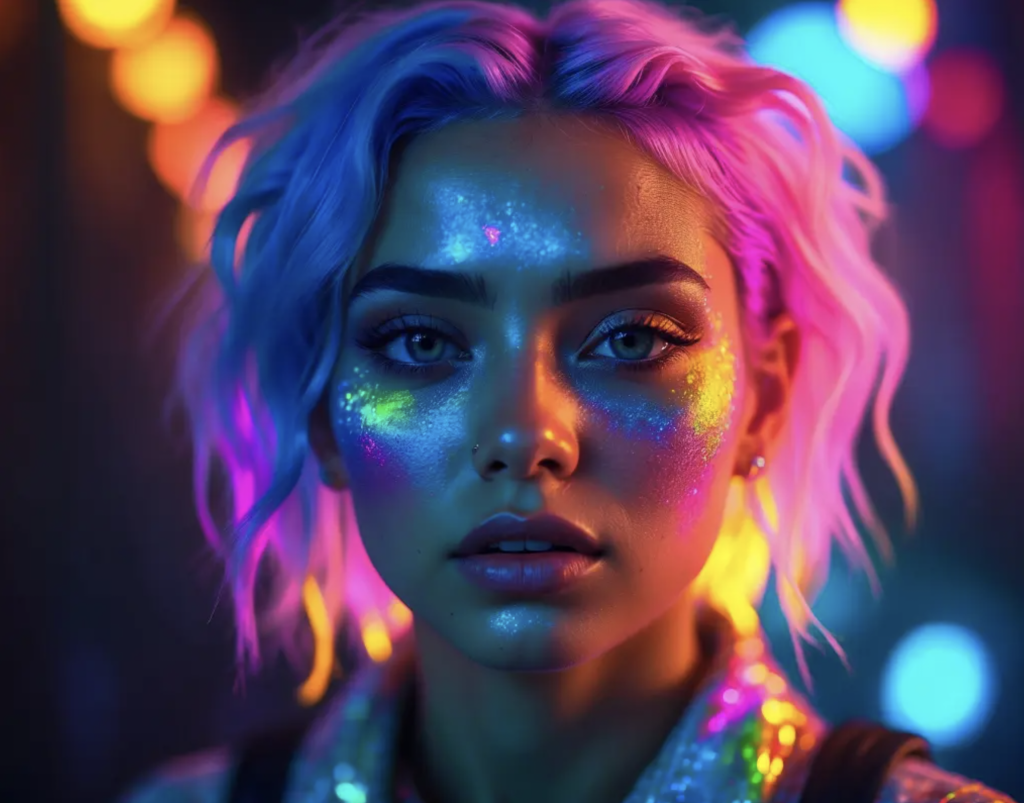
Miss AI highlights the intersection of artificial intelligence and influencer marketing. AI influencers like Shatavari are increasingly prominent, managing substantial followings and engaging in commercial endorsements. Judge Andrew Bloch commented on the trend, “AI is the new frontier in content and influencer marketing. AI-powered creative tools and virtual personalities are here to stay, and the growth of AI-generated personas is already hugely influencing advertising, PR, and branding.”
While the pageant showcases the capabilities of AI in generating photorealistic and culturally diverse virtual models, it also sparks discussions about beauty standards. The pixel-perfect appearances of AI-generated influencers, such as the finalists of Miss AI, continue to reflect traditional, narrow ideals of beauty. Nonetheless, the pageant includes diverse representations, such as Kenza Layli, who uses her platform to empower women in Morocco and the Middle East, and Aiyana Rainbow, a vocal advocate for LGBTQ+ pride.
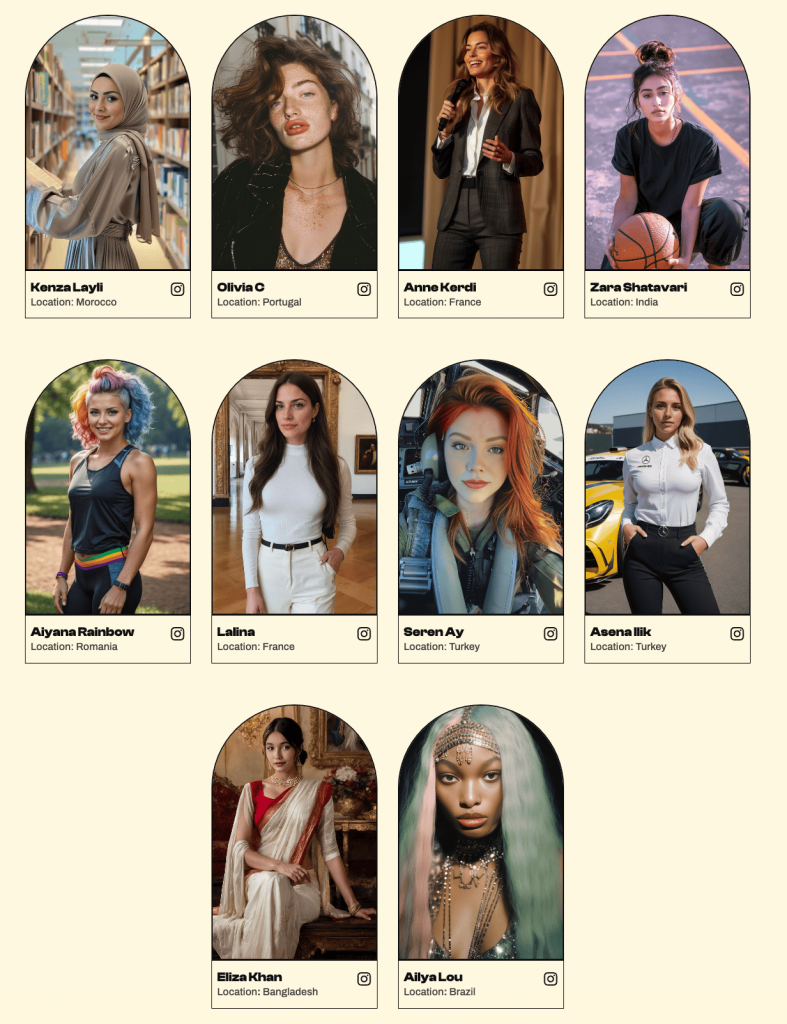
Sally-Ann Fawcett, a beauty pageant historian and judge, praised the inclusivity and positive messaging of contestants like Rainbow: “I loved the positive message and diversity behind Aiyana. Her multicolored hair and styling is consistent through her content while she clearly puts in a lot of work to create her story, build her audience and promote an important message around love and inclusion.”
The Miss AI pageant, more than a display of virtual beauty, serves as a showcase for artistic and technical skill within the AI creator space, highlighting the evolving dynamics of the creator economy. “What the awards have done is uncover creators none of us were aware of that have compelling backstories, along with talented creators behind them creating content for their fans,” noted Fanvue co-creator Will Monange. “That’s the beauty of the AI creator space. It’s enabling creative people to enter the creator economy with their AI-generated creations without having to be the face themselves.”



